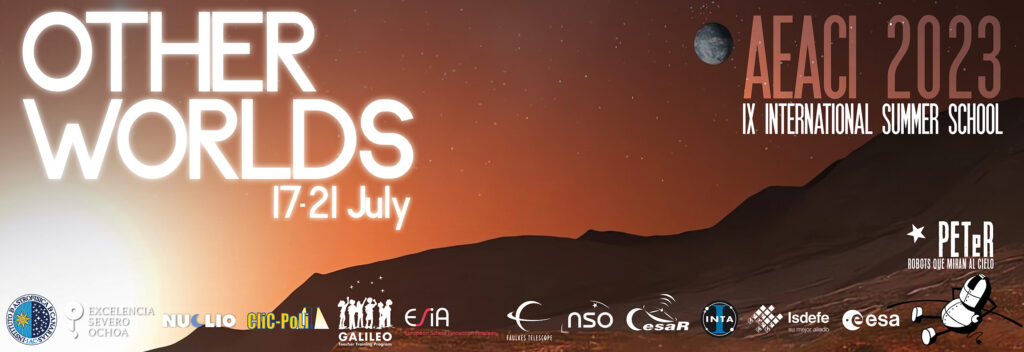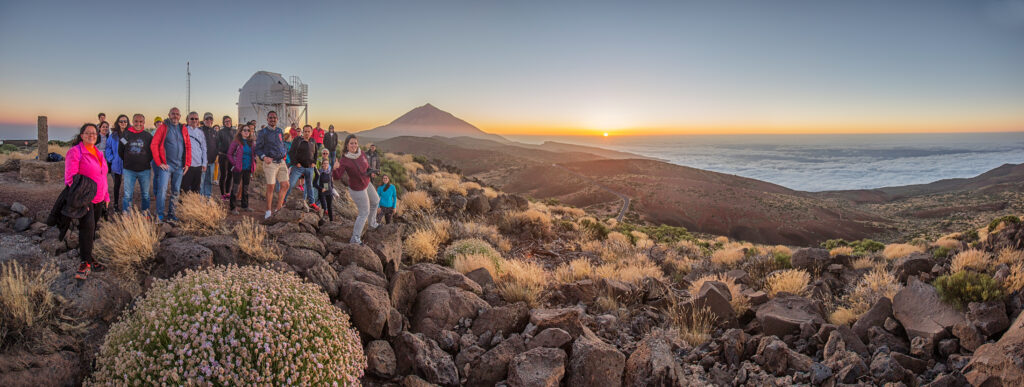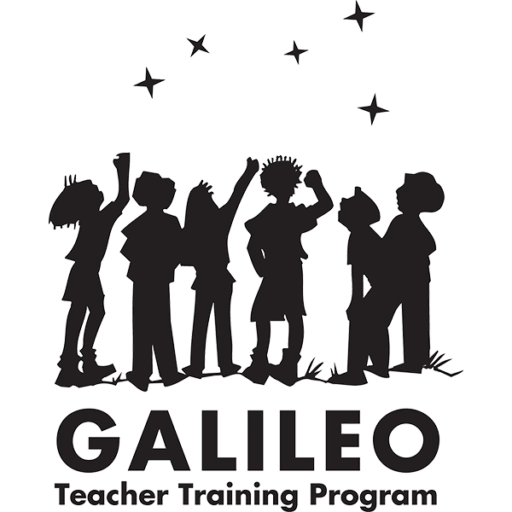Date: 17-21 July 2023
Venue: San Cristóbal de La Laguna, Tenerife, Canary Islands, Spain – hybrid format
This course is organized in the framework of teacher training activities of the PETeR Project (IAC).

NUCLIO and the IAC (Instituto de Astrofísica de Canarias) join hands again to promote the ninth edition of Astronomy Education Adventure in the Canary Islands. In 2023, under the theme “Other Worlds“, the latest discoveries and advances in research on extrasolar planets, the Solar System and the applications of astrophysical technology to other fields, such as the observation of the Earth from space, will be presented. All from the approach of practical application to STEAM (Science, Technology, Engineering, Arts and Mathematics) education and inquiry-based learning.
The main objective of the school is to provide participating teachers with the knowledge and tools to stimulate their students’ interest in science and technology through their participation in research projects in Astronomy and related areas, as well as to promote critical thinking, problem-solving skills, knowledge of the sky and its preservation as part of humanity’s heritage.
The school will take place from 17 to 21 July 2023 in a hybrid format, both face-to-face (at IACTEC, San Cristóbal de La Laguna, Tenerife, Canary Islands) and online, allowing each participant to enjoy the AEACI in the most convenient way.
Who can apply?
About the School
You can find the detailed program here:
The program is subject to minor changes without previous notice.
Fees & Funding
Registration
Registration is closed.
Registration ended on the 30th of June.
Practical Information
The school will be held in the “Sala Grande” of the IACTEC building, in San Cristóbal de La Laguna (Tenerife, Spain).
Contacts

Organizers
The school is organized by the IAC and NUCLIO (the coordinator of the Galileo Teacher Training Program), in the framework of the IAC PETeR project, and is carried out in collaboration with the Faulkes Telescope Project, the National Schools’ Observatory, the CESAR educational initiative (ESA-INTA-ISDEFE), and in partnership with the European School Innovation Academy (ESIA).
Organizing Committee
- Nayra Rodríguez Eugenio (Co-Director of the School, IAC)
- Rosa Doran (Co-Director of the School, NUCLIO)
- Gustavo Rojas (NUCLIO)
- Ana Costa (NUCLIO)
- Teresa Direitinho (NUCLIO)
- Fraser Lewis (FTP, NSO)
- Alejandra Goded Merino (IAC)
- Iván Jiménez Montalvo (IAC)
- Beatriz González (CESAR, ISDEFE)
- Sandra Benítez Herrera (CESAR, ESAC)
- Juan Ángel Vaquerizo (CESAR, ISDEFE)
Technical Secretariat
- Ana Costa (NUCLIO)
- Elena González (IAC)
- Ana Quevedo (IAC)
